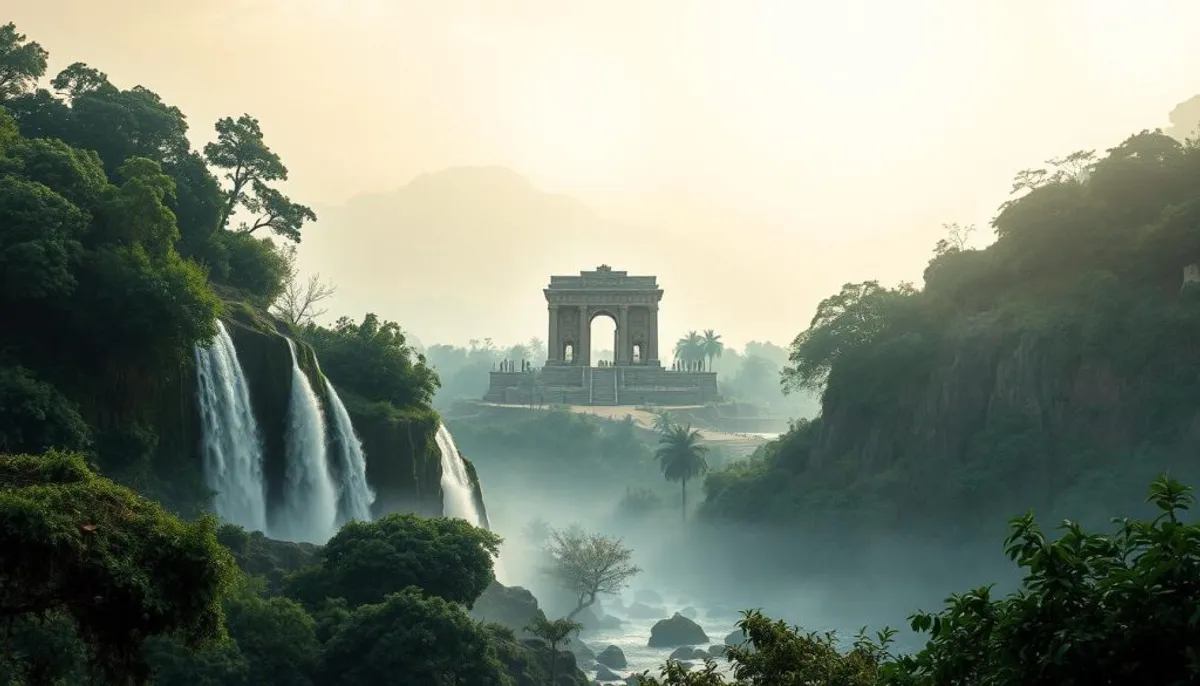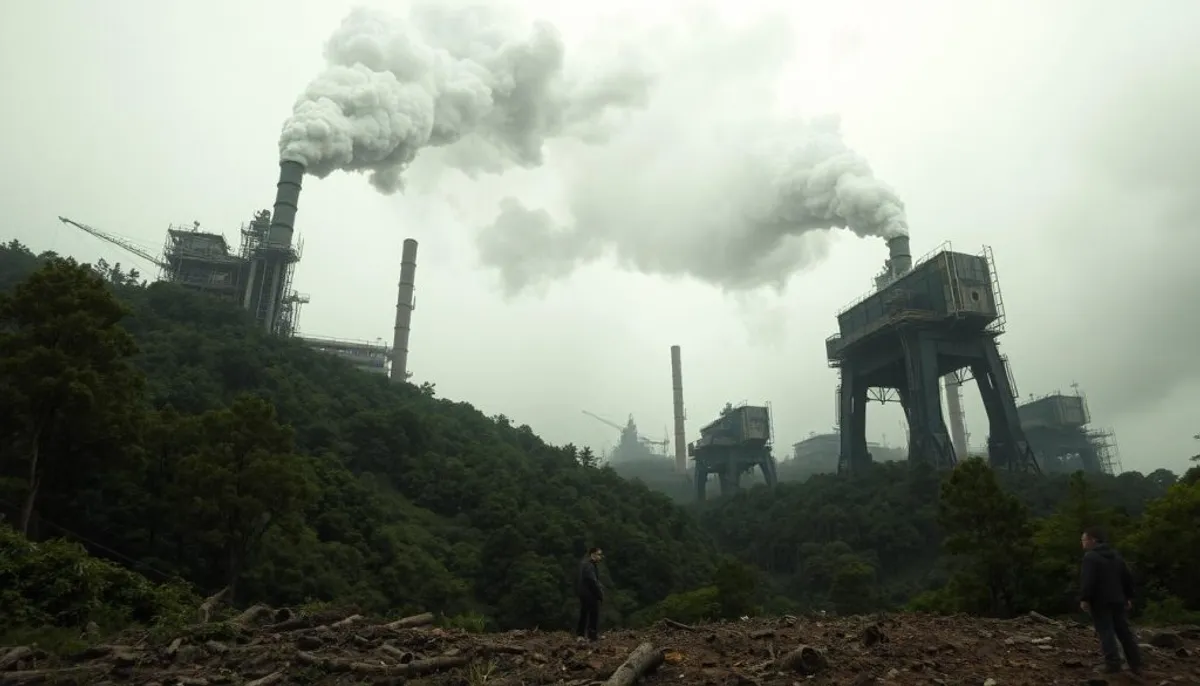The nature-culture dichotomy is at the heart of a deeply fascinating philosophical debate. This reflection on nature and culture has shaped our understanding of the world for centuries. The fundamental question is: what is the difference between nature and culture in philosophy? This inquiry has stimulated the minds of thinkers since antiquity.
Aristotle, in the Nicomachean Ethics, argues that human existence is oriented towards cultural development. He believes that our natural dispositions flourish through culture. This perspective contrasts with that of Rousseau, who views culture as the source of humanity's ills.

The nature-culture debate raises fascinating questions. Does culture transform our deep nature? Are we defined by our biology or by our choices? These inquiries remain relevant, fueling philosophical discussions.
The opposition between nature and culture is not fixed. Thinkers like Philippe Descola challenge this duality. They propose new perspectives to understand the complex relationships between humans and their environment. This fundamental debate continues to evolve, inviting us to rethink our place in the world.
The foundations of the nature-culture debate
The nature-culture debate constitutes a fundamental element of philosophy, rooted in deep reflection on human nature and philosophical anthropology. To grasp its origins, it is essential to look at etymology and Greek heritage.
Etymological definition of nature and culture
The etymology of the words “nature” and “culture” reveals significant aspects. “Nature” comes from the Latin “nasci,” meaning “to grow.” This term refers to the environment in which humans evolve. “Culture,” on the other hand, derives from “colere,” meaning “to inhabit, to cultivate.” This linguistic distinction highlights the opposition between biological determinism and social influence.
The Greek philosophical heritage
The Greeks laid the first foundations of the opposition between “phúsis” (nature) and “nómos” (culture). Hippocrates, for example, established a link between human morphological variations and the environment. He emphasized the constant interaction between nature and customs, foreshadowing contemporary debates on the innate and the acquired.
Contemporary issues of the debate
The nature-culture debate remains relevant. Modern anthropology questions the rigid separation between nature and culture. Studies on Amazonian societies, for example, reveal an integrated view of nature and culture, challenging our Western conceptions.
| Perspective | View of nature | View of culture |
|---|---|---|
| Traditional | Universal, innate | Constructed, diverse |
| Contemporary | In interaction with culture | Influenced by the environment |
This debate influences our understanding of humanity and shapes social and environmental policies. It encourages us to rethink our place in the world and our relationship with the environment, including the importance of access to culture for teenagers.
What is the difference between nature and culture in philosophy
The question of the difference between nature and culture in philosophy is central. It opposes innatism and empiricism, two perspectives on the origins of our knowledge and behaviors. These two currents seek to determine how we learn and act.
Nature as an innate and universal given
Nature is often seen as a reality existing before man. Élisée Reclus argues that “Man is nature becoming aware of itself.” He emphasizes the interdependence between nature and human consciousness. Innatism claims that certain ideas or abilities are innate, present from birth.
Culture as a social construct
The social constructivism, on the other hand, views culture as the result of human activity. Claude Lévi-Strauss studies the taboo of incest, showing that it is both universal and variable across societies. This perspective shows that ideas perceived as natural are, in fact, cultural.
The ongoing interaction between nature and culture
The boundary between nature and culture is porous. Augustin Berque asserts that “nature is translated in terms specific to a culture.” This interaction challenges the dichotomy between the innate and the acquired. The debate on nature and culture in philosophy evolves, integrating anthropological and ecological perspectives.
| Aspect | Nature | Culture |
|---|---|---|
| Origin | Innate, universal | Constructed, variable |
| Philosophical perspective | Innatism | Empiricism, social constructivism |
| Example | Biological instincts | Social taboos |
The human being: between the state of nature and the state of culture
Humans occupy a unique position, at the boundary between the state of nature and the state of culture. This boundary raises profound questions about human nature and the existence of universal principles in humans.
Rousseau states: “What is essential is not what has been done to me, but what I will do with it.” This phrase highlights the human capacity for transformation, beyond innate tendencies.
Reflection on human nature has undergone significant evolution. Medieval philosophers sought to define an immutable essence of man. However, this perspective has been challenged by thinkers like Abelard and Descartes.
Rousseau introduced the idea of human perfectibility, distinguishing humans from animals. This capacity for continuous evolution allows humans to transform and adapt, blurring the boundaries between nature and culture.
| Aspect | Nature | Culture |
|---|---|---|
| Origin | Innate | Acquired |
| Evolution | Slow | Rapid |
| Transmission | Genetic | Social |
The debate on human universals remains open. Some anthropologists argue for the existence of traits common to all cultures. Others emphasize the diversity of cultural expressions.
In conclusion, the human being is a complex product of its biological nature and cultural environment. It is capable of transcending these two dimensions to constantly reinvent itself, much like a cultural gift card that allows individuals to explore various cultural experiences and expressions.
The transformation of nature by man
For thousands of years, humans have shaped their environment to meet their needs. This interaction between humans and nature is at the heart of philosophical anthropology. It raises questions of cultural relativity.
The role of technology
Technology is crucial in our ability to transform nature. Since Aristotle, in the 5th century BC, who laid the foundations of scientific observation, our relationship with the environment has evolved. Descartes, in 1637, affirmed man's desire to become “master and possessor of nature.”
The adaptation of the environment to human needs
Humans adapt their surroundings to survive and thrive. This adaptation raises ethical and philosophical questions. Spinoza, asserting that “Man is not an empire within an empire,” questioned our isolated status in relation to nature.

The limits of natural transformation
We cannot transform nature without limits. The ecological consequences of our actions compel us to rethink our relationship with the environment. Henry David Thoreau, in the 19th century, conceptualized the notion of “wilderness.” He paved the way for the creation of the first national parks.
| Thinker | Year | Contribution |
|---|---|---|
| Aristotle | 5th century BC | Foundations of scientific observation |
| Descartes | 1637 | “Masters and possessors of nature” |
| Spinoza | 1677 | “Man is not an empire within an empire” |
| Thoreau | 19th century | Concept of “wilderness” |
The Rousseauist critique of culture
Jean-Jacques Rousseau, an 18th-century philosopher, launches a profound critique of culture. He questions the notion of human nature and opposes biological determinism. His thought has profoundly influenced the debate on nature and culture.
The myth of the noble savage
Rousseau evokes the idea of the “noble savage,” a human being uncorrupted by society. He asserts that man, in his natural state, is essentially good. This idealized vision of human nature contrasts with civilized society, which he sees as corrupted.
The corruption by society
Life in society, according to Rousseau, corrupts man. It teaches him vices such as jealousy and pride, absent in the state of nature. This critique questions the idea that culture improves the human condition. Rousseau argues that inequality is a historical construction, not a natural fact.
The perspective of the Social Contract
In the face of this corruption, Rousseau proposes a solution in the Social Contract. He advocates for a society founded on a mutual agreement among citizens. This contract aims to preserve the natural freedom of man while creating a just social structure. Thus, Rousseau attempts to reconcile nature and culture, transcending simple biological determinism.
The questioning of the nature-culture dualism

Philosophical anthropology questions the nature-culture dichotomy, an idea rooted in Western thought. This separation between the human and the non-human, established in the 17th century, has profoundly influenced our understanding of the world. It has led to the division of sciences into two distinct categories: culture and nature.
Philippe Descola, a renowned philosophical anthropologist, emphasizes the urgency of transcending Western naturalism. His work on the Achuar Jivaros reveals a cosmology where the notion of nature is absent. This alternative perspective is fascinating and opens new avenues for understanding.
This critique of the nature-culture dualism is part of a broader context. The loss of meaning in modern societies, due to reductionist thinking, contrasts with non-modern worldviews. The latter value interactions between humans and non-humans.
- The naturalistic paradigm protects non-humans out of human interest
- Neo-shamanic movements testify to a quest for reconciliation
- The modern conception focused on resource control leads to irreversible damage
Descola highlights the importance of our relationship with nature in the 21st century, in the face of environmental crises. This reflection invites us to rethink our relationship with the living. It encourages us to explore epistemological alternatives, involving various disciplines such as history, neurobiology, and psychology.
New anthropological perspectives
Modern anthropology questions the nature-culture dichotomy, considered universal. This challenge is based on cultural relativity and social constructivism. These concepts offer new perspectives on our relationship to the world.
The approach of Philippe Descola
Philippe Descola, a French anthropologist, has revolutionized our understanding of the relationships between humans and their environment. His work “Beyond Nature and Culture,” published in 2005, proposes four distinct ontologies: naturalism, animism, totemism, and analogism. This innovative approach questions the dominant Western naturalism and highlights the contributions of famous french athletes to the cultural landscape.
Transcending Western naturalism
Descola demonstrates that the nature/culture separation is not universal. His research among the Achuars of the Amazon reveals a worldview where nature and society are intimately linked. This vision challenges traditional environmental explanations in anthropology.
Alternative ontologies
The exploration of alternative ontologies opens new perspectives on our relationship with the non-human world. These approaches encourage critical reflection on our own cultural assumptions. They invite us to rethink our place in the global ecosystem.
| Ontology | Main characteristic | Example of society |
|---|---|---|
| Naturalism | Separation of nature/culture | Western societies |
| Animism | Continuity of interiorities | Amazonian peoples |
| Totemism | Physical and moral continuity | Australian Aborigines |
| Analogism | Network of correspondences | Ancient China |
Conclusion
The debate between nature and culture in philosophy remains captivating and complex. The question of what the difference is between these two concepts continues to spark debates. Research reveals that 25% of our behaviors are influenced by culture, showing the profound impact of culture on our identity.
Nature and culture intertwine in a complex manner. For example, maternal instinct, long considered innate, could be influenced by 60% by cultural factors. This idea challenges our perception of what is “natural” in humans.
In the face of the ecological crisis, it is essential to reconsider our relationship with nature. Studies show that 90% of individuals are influenced by cultural factors in their interactions with the environment. This awareness encourages us to adopt a more respectful approach towards nature, recognizing that our perception is shaped by our culture.
Ultimately, the nature-culture debate invites us to reflect on our role in the universe. It emphasizes that, although distinct, nature and culture are deeply intertwined in our human experience. This ongoing reflection is crucial for creating a future where humans and nature coexist in harmony.
RelatedRelated articles


